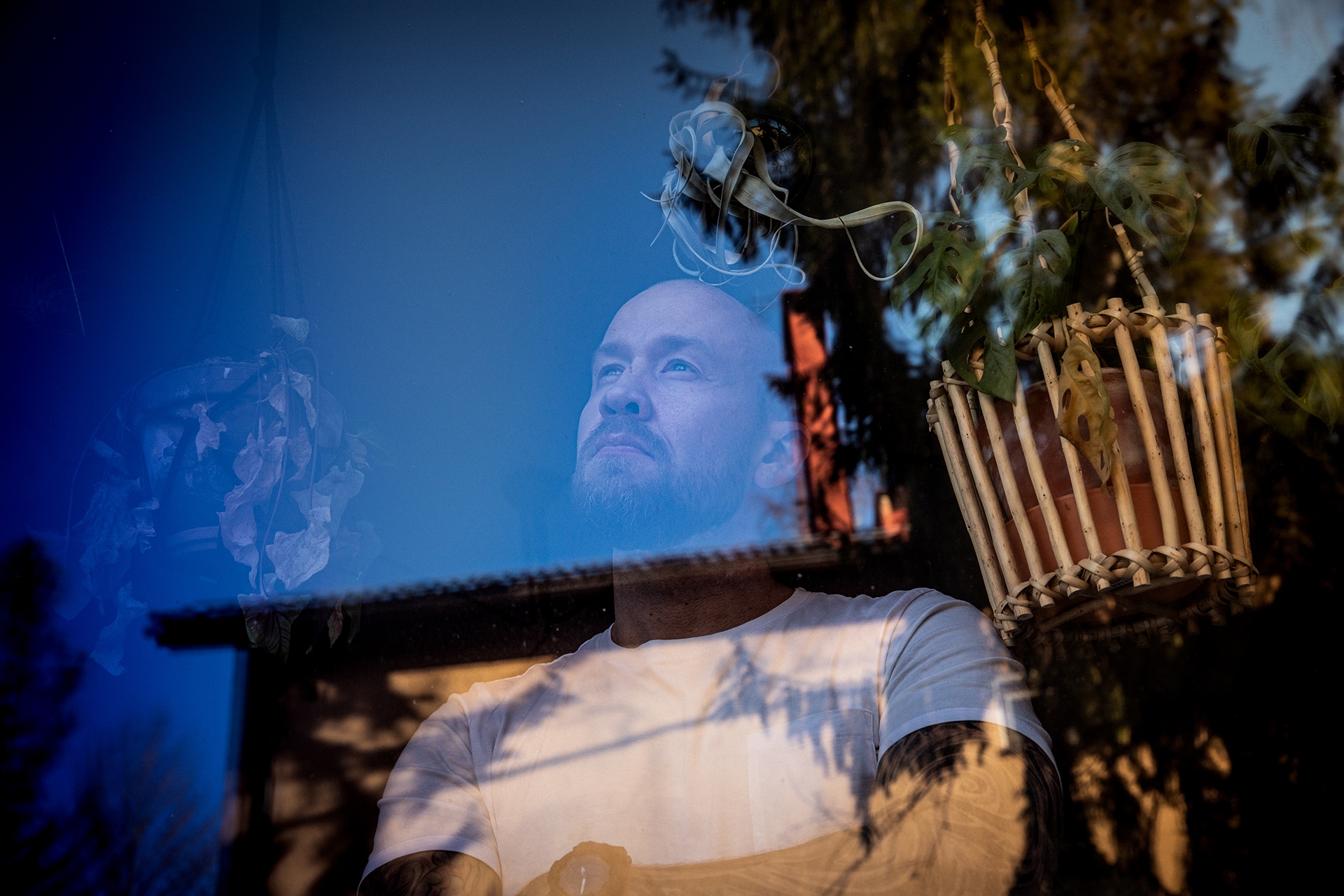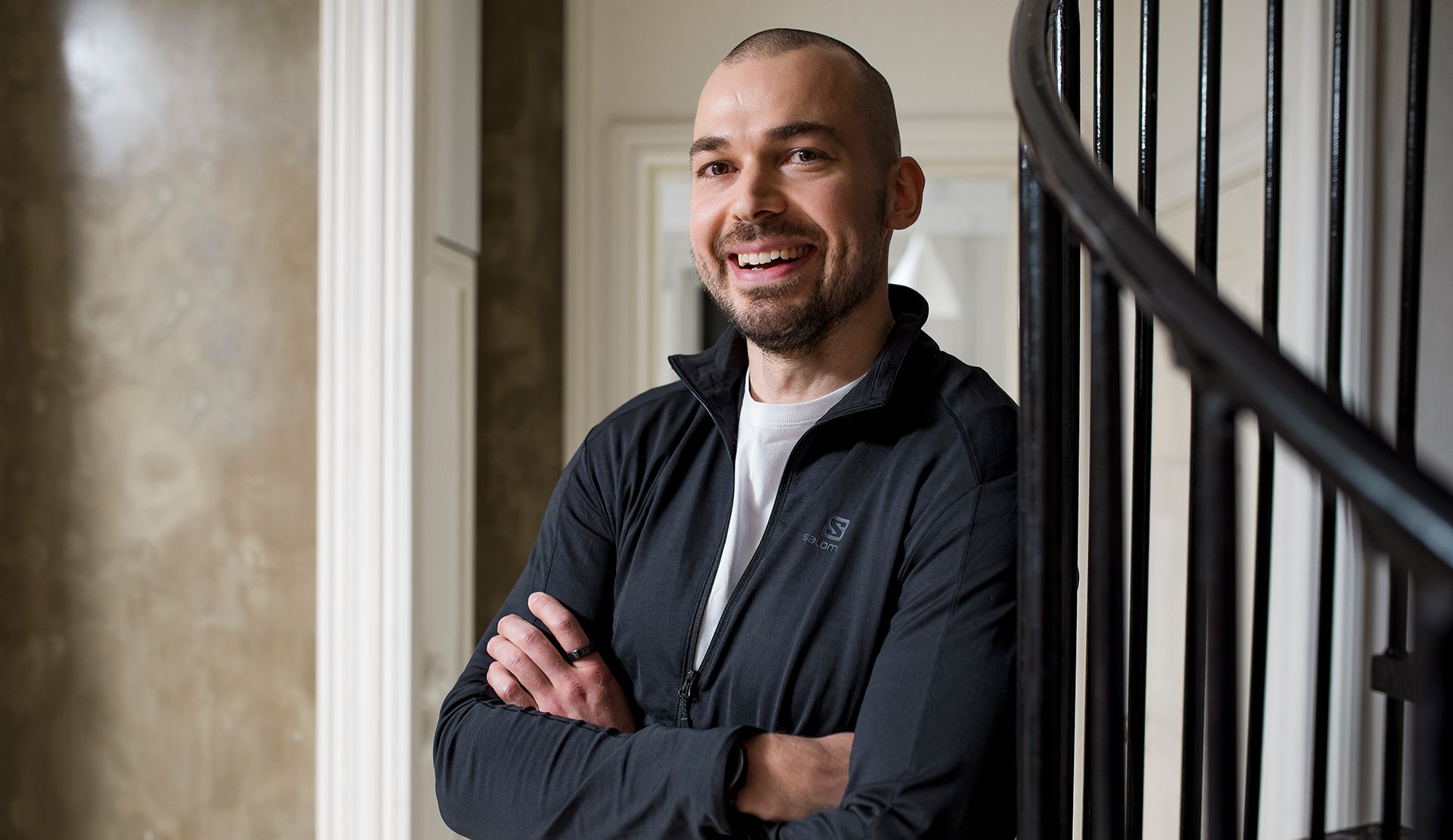
Chronic fatigue syndrome
Specialists in the article


Revised 11/6/2025
Chronic fatigue syndrome in brief
- Fatigue syndrome refers to symptoms that are dominated by weakness and long-term exhaustion even after minimal exertion, and the cause of the condition is still unknown.
- The treatment of the syndrome focuses on relieving and controlling the symptoms and improving the patient's functional capacity in the process.
What is chronic fatigue syndrome?
Chronic Fatigue Syndrome (ME/CFS, in which ME stands for Myalgic Encephalomyelitis and CFS, Chronic Fatigue Syndrome) includes symptoms which are dominated by PEM (Post Exertional Malaise) and prolonged, deep exhaustion after even a minor exertion. In the syndrome, fatigue does not subside with rest and it worsens as a result of exertion. The factors that trigger the syndrome have been studied for a long time, but the actual cause of the syndrome is still unclear.
Since typical findings caused by ME/CFS, such as biomarkers or imaging findings, have not yet been identified in the body, the diagnosis of ME/CFS is based on different criteria. However, laboratory tests and imaging examinations can exclude other causes of the symptoms, which is why examinations are often justified before the diagnosis is made.
How is chronic fatigue syndrome treated?
The treatment of chronic fatigue syndrome aims to improve the patient's functional capacity by alleviating and controlling the symptoms of the syndrome. It is important to strike a balance between rest and activity according to the individual's personal limits, and support from a physiotherapist, occupational therapist, dietitian as well as psychosocial and psychiatric support may help depending on the situation. Healthy nutrition combined with adequate sleep and appropriate exercise are beneficial for recovery. The need for medication is assessed by a physician.
Self-care for chronic fatigue syndrome
You can try to alleviate symptoms of chronic fatigue syndrome through the following methods:
- Benefits: Reduces stress, increases well-being, creates physical tiredness, and strengthens the circadian rhythm.
- Do this: Exercise regularly during the day. Light stretching or walking is suitable for the evening.
- Remember: Consistency is key. Avoid stimulating physical activity late in the evening.
- Benefits: Help reduce anxiety related to sleep and diminish the power of internal dialogue that sustains insomnia.
- Do this: Listen to and write down your thoughts without judgment, practice mindfulness, and be kind to yourself even after restless nights.
- Remember: A more relaxed and accepting attitude toward sleep makes it easier to fall asleep.
- Benefits: A gentle act of self-care. Allows the nervous system to relax and helps release tension.
- Do this: Find gentle methods, such as spending time in nature, engaging in creative activities, or doing light stretching. Remember to get enough rest.
- Remember: Be kind to yourself and give yourself time to recover. Recovery is the most direct path to restful sleep.
- Benefits: Relaxation is a skill that can be learned and improves sleep. Exercises help manage stress and lower the body's alertness level.
- Do this: Try mindfulness meditation focusing on your breath, or a visualization exercise of your own safe space.
- Remember: You cannot fail at practicing. Consistency will be rewarded with better sleep.
- Benefits: Recharges your energy, prevents stress buildup, strengthens the body's natural rhythm, and supports recovery.
- Do this: Stick to a regular sleep schedule, structure your day with breaks, listen to your body, and keep any naps short (under 30 minutes).
- Remember: Treat rest as just as important as any other task in your day.
- Benefits: Calms the body and mind for rest, lowers alertness, and helps shift worries away from bedtime.
- Do this: Try breathing exercises, relieve stress through physical activity, write down your worries on paper, and create a screen-free evening routine.
- Remember: Find the methods that work best for you. Adopting even one new habit can bring relief.
- Benefits: Keeps blood sugar stable, prevents energy surges, ensures nutrient intake, and supports sleep.
- Do this: Eat regularly and diversely. Lighten your meals toward the evening by avoiding heavy meals, caffeine, and sugar. Drink water during the day, but limit it later in the evening.
- Remember: Even small changes in eating habits can have a significant impact on your sleep.
- Benefits: Supports sleep by regulating the body's internal clock, reducing stress, and promoting healthy tiredness.
- Do this: Spend 20–30 minutes outdoors daily, especially in daylight. Even light, regular walking is sufficient.
- Remember: Avoid heavy exercise late in the evening to prevent becoming overly energized.
- Benefits: Supports the body's internal clock, sends a clear signal for rest and activity times, and makes it easier to fall asleep at the right time.
- Do this: Wake up at the same time every day. Avoid long naps over 30 minutes, especially after 3 PM. Dim the lights and stop using smart devices well before bedtime.
- Remember: A consistent wake-up time is even more important than your bedtime. Discipline will be rewarded with better sleep.
When should you seek help for chronic fatigue syndrome?
To diagnose chronic fatigue syndrome, it's good to make clear the underlying causes so that the symptoms can be treated correctly.
Seek treatment if the sleep problems last for more than three weeks, occurring several nights a week, and your own attempts to correct the situation do not help.
Prices are starting prices and depend on the selected studies and treatment methods. An outpatient clinic fee and Kanta fee are added to consultation visits.
| Service | Price estimate |
|---|---|
| Start of CPAP machine therapy (1st appointment with a sleep apnoea nurse) *The customer purchases a CPAP machine for themselves, starting from 224,20 €. | from 224,20 € No Kela reimbursement |
| Initial examination for snoring | from 140,10 € Without Kela reimbursement from 148,10 € |
| Concise sleep polygraphy No Kela reimbursement will be paid for a concise sleep polygraphy. Learn more and book an appointment for a concise sleep polygraphy | from 558,70 € No Kela reimbursement |
| First appointment for a sleep apnoea oral appliance The estimated total price of a sleep apnoea oral appliance starts from about EUR 1,200. Learn more and book a first appointment for a sleep apnoea oral appliance | from 96,80 € Without Kela reimbursement from 123,80 € |
| Initial evaluation for sleep apnoea | from 140,10 € Without Kela reimbursement from 148,10 € |
| Initial examination of sleep disorders | from 140,10 € Without Kela reimbursement from 148,10 € |
Related symptoms
Fatigue
Many people experience occasional fatigue. Energy levels are influenced by lifestyle, health and many external factors.
Insomnia
Being stressed and busy daily can make it difficult to calm down, which, in turn, will affect sleep.
Narcolepsy
Excessive daytime sleepiness and episodes of suddenly falling asleep may be caused by narcolepsy.
Other sleep disorders
Sleep disorders include restless legs and the rarer disorders of narcolepsy, chronic fatigue syndrome and various parasomnias.
Restless legs syndrome
Uncomfortable sensations in the limbs at rest can disturb sleep.
Sleep apnoea
Narrowing of the airways and relaxation of the muscles during sleep can lead to pauses in breathing.
Snoring
Noise during sleep is caused by a narrowing of the airway.
Other related services
CPAP therapy
Positive airway pressure ventilation effectively reduces sleep apnoea symptoms and improves the quality of life.
Sleep apnea examination, night polygraphy
A reliable at-home examination to diagnose and assess the severity of sleep apnoea.
Sleep apnoea oral appliance
A treatment especially for mild sleep apnoea.
Frequently asked questions about chronic fatigue syndrome
Chronic fatigue syndrome (ME/CFS) is a long-term illness characterised by extreme tiredness and/or exhaustion (fatigue), which does not fully improve with rest and which can worsen even with slight physical or mental exertion. There may be many different symptoms. Symptoms may include muscle and joint pain, headache, impairment of cognitive functions (memory, concentration, "brain fog") and postural orthostatic tachycardia syndrome (POTS) and palpitations.
The treatment of chronic fatigue syndrome is individual and may include the following forms of treatment, for example:
- Symptomatic treatment. Medicines can be used to treat pain and certain sleep disorders.
- Cognitive behavioural therapy (CBT) can help the patient deal with limitations caused by the condition and find ways to adapt to them.
- Graded exercise therapy. A customised exercise programme guided by a physiotherapist can help to improve physical functional capacity.
- Nutritional therapy. A balanced diet and possible dietary supplements can support overall health.
- Stress management. Relaxation techniques and other stress management methods can help to manage symptoms.
It is important to discuss your situation with your physician to prepare the right treatment plan, as the treatment of chronic fatigue syndrome is specific to the individual and depends on many factors.
The treatment of chronic fatigue syndrome, like the treatment of sleep disorders in general, starts with a thorough survey of the patient's symptoms, after which further examinations, such as laboratory tests or a sleep registration study, can be carried out, depending on the situation.
The treatment of chronic fatigue syndrome, like the treatment of sleep disorders in general, begins with a thorough mapping of the patient's symptoms through an initial examination for sleep disorders. The price of an initial examination for sleep disorders varies from specialist to specialist. You can see each specialist's price for the initial examination for sleep disorders in our online appointment booking service. Thanks to our flexible payment methods, you can also pay for this examination in instalments, for example. Learn more about our payment methods.
Book an appointment for an initial examination for sleep disorders


